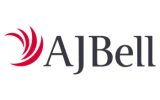Compare UK Pension Services
Compare pension services for self invested pensions (SIPPs) where you can pull your existing pension plans into one place.
Lost track of old pension plans? Service for tracking down plans from previous employments.
Annuity service if you are looking to buy a guaranteed income from your pension pot.
Looking To Retire At Age 55? FREE Guide

FREE Guide – Retiring Early!
8 tips for an earlier, wealthier retirement
Transforming that dream into a reality doesn’t come cheap, how could you afford it? Once you have paid off debts, like it or not, the answer is likely to depend on your pension.
Straightforward guide provides eight tips that could help you to retire earlier than you thought, including:
- The simple formula for how much you should consider investing each month
- How to boost existing pensions
- Understanding the options available at retirement (including the new rules)
This guide is not personal advice. Please remember tax rules can change and the value of the tax benefits will depend on your circumstances. The value of investments can fall as well as rise so you could get back less than you invest. Pensions cannot usually be withdrawn until age 55 (increasing to 57 in 2028).
Self Invested Pension
Take Control of your pension!
A self-invested personal pension (SIPP) is different to a traditional pension. Instead of limiting your investment options, a SIPP opens the doors, giving you more choice in how you invest your money. Like other pensions, the government will still give you up to 46% tax relief on the amount you pay in. Once your money is in a SIPP, you won’t have to pay tax on any gains or income your investments make.- Low cost award winning pension – Fixed fee plan keeps costs down over long term
- Investment choice – Choose from more than 40,000 investments
- Ready made funds and investment ideas – Making it easy to select investments
- Expertise – Research, ideas, and updates to help you with your investment decisions
Compare Self Invested Pension Providers

A low cost award-winning SIPP that gives you a choice of over 40,000 investments; Selected funds; Ready made portfolios.
Sipp fee: £5.99 pm – assets up to £50,000, £12.99 pm – assets over £50,000

Low-cost personal pension from award-winning provider Bestinvest. Choose from thousands of investments, get inspiration from guides and articles or opt for a Ready-made Portfolio
Sipp fee: up to 0.4% pa

Thousands of funds to choose from; Select 50 – Browse a list of expert picks. Pathfinder – Risk profiled fund options. Investment Finder – Search 1000s of investment ideas.
Less than £25,000: 0.35% if you have a regular savings plan or £90 (£7.50 a month) if you don’t
£25,000 or more but less than £250,000: 0.35%
£250,000 or more but less than £1 million: 0.20% – and you will automatically qualify for Fidelity’s Wealth Management Service benefits
£1 million+: 0.20% a year for the first £1 million and no service fee for investments over £1 million
Annuity Services
Pension Finder & Transfer Service
There are no tables for this criteria
State Pension
State pensions are the building blocks for most people’s income in retirement. In practice, most people will receive an income from a number of sources, for example, state pensions, private pensions and company pension schemes. State pensions are taxable but are always paid gross, ie, no tax is deducted from the payment. Rather, state pensions will utilise the initial part of your personal allowance, with the balance of your income then being subject to tax at your normal rates.
How much will I get?
The single person’s full basic state pension currently stands at £95.25 per week, with the dependant’s addition of £57.05, making the total pension for a married couple of £152.30 per week (during the tax year 2009/2010). Importantly, both a husband and a wife may be able to each claim an individual entitlement to the basic state pension, boosting overall income by over £35 per week.
State pensions, and your entitlement to them, are based on your national insurance contributions record.
How do I qualify?
To qualify for basic state pensions, you need to have made national insurance contributions (or have been credited with them, for example during periods when you have caring for someone or maternity leave) for at least 11 years, although if you wish to receive a full basic state pensions, then currently you need to have made national insurance contributions for 39 years for a woman and 44 years for a man.
With effect from 2010, however, you need only have accumulated 30 qualifying years to receive full basic state pensions. This means that if you are contributing voluntary class 3 contributions in order to boost your entitlement, unless you are due to retire before 2010, this could be money wasted.
National insurance contributions are divided into four classes 1 to 4 and only classes 1, 2 and 3 count towards your entitlement to basic state pensions.
Class 1 contributions are paid by employed persons and are based on a percentage of a proportion of your earnings.
Class 2 contributions are paid by the self employed and are paid at a flat rate.
Class 3 contributions are voluntary for those wishing to increase their entitlement.
Class 4 contributions are payable by the self employed and are based on a percentage of profits over a certain level. These contributions are compulsory and provide no further benefits over those provided by Class 2.
In addition to basic state pensions, you may also qualify for one or more of the following state pensions:-
State Second Pension – replaced SERPS and is more generous to lower earners than its predecessor.
State Earnings Related Pension Scheme (SERPS) – earnings related top-up which was replaced in 2002 by the State Second Pension
Graduated Pension – Some older people may be eligible for Graduated Pension. This was accrued between 1961 and 1975 when it was replaced by SERPS. It is often very small, invariably only a few pounds a week.

10 COSTLY PENSION MISTAKES
10 Costly Pension Mistakes Millions of Britons Make
- How to discover if your pension will be enough
- What ‘free money’ most private sector workers miss out on
- How to get a share of £41 billion from the taxman
- How to benefit from the pension freedoms and avoid the traps






